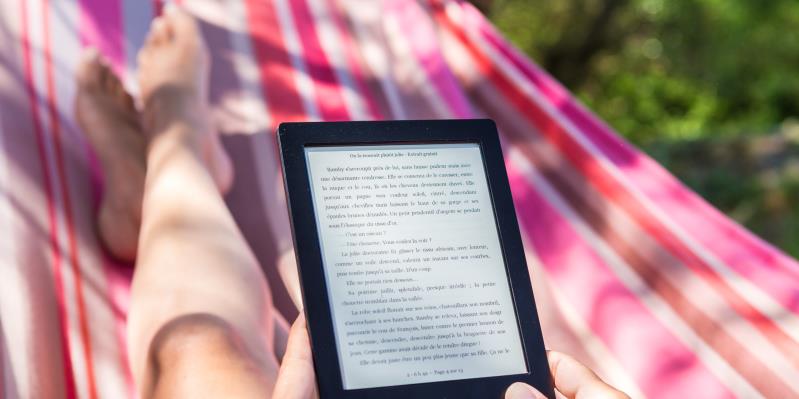When a Book is Not a Book
We all have a vague idea of what a book is, but the concept of a book has been changed and questioned over time.
Between two covers lies a new experience, even if it's been read and reviewed a hundred times; experience is what makes a book a book. Surely reading something like a periodical, magazine, or an eBook would be quite a different experience. Many “works” are commonly identified as or mistaken for books, but not every work is a book.
What is a Book?
By definition a book is a collection of pages which are bound together into one material whole. The pieces of paper between the covers are expected to contain something of value, some story or information worth reading. That information is expected to be a complete manuscript.
Many people simply substitute the word “book” for the word “novel.” A novel is not the only kind of book out there, but the point with defining it this way is to clarify the ideal length for a book. In a novel sense, books should have two covers and plenty of words between the pages.
Reading a book takes time; it takes time because books have experiences painted on its pages. Books go on the shelf and come off just as easily when we read and experience them again next year. There are books of the non-fiction variety like dictionaries, encyclopedias, textbooks, biographies, and memoirs. Short non-fiction works would be considered books, ones even shorter than most novels.
It seems the length of a piece affects our definition of adult books, but this isn't the case with children's books. Children's books don't require words, but they do provide a journey. Children's books pulse with color and interaction. In the reading community there is plenty of confusion about what makes a book a book.
Listed below are works which are sometimes mistaken for books:
Short Stories, Novelettes, and Novellas. none of these are books<
- Short Stories, Novelettes, and Novellas. We probably won't see any short stories published as books, but we can usually find collections of short stories in book form. A novelette and a novella could be considered book, as they are physically bound. However, in the novel sense, none of these are books by themselves.
- Magazines - Magazines. Some may consider magazines to be books because there is information between its pages, but they are littered with ads. Additionally, the pages on a magazine don't need to be related like the pages and chapters of a book. The purpose of a book is to tell a story, whether it be of the fiction or non-fiction variety. Magazines tell many stories that don't take us on the same kind of journey; they take us on a bunch of little journeys.
- Dissertations - dissertation can be transformed Dissertations. Dissertations are academic papers (sometimes of considerable length), but they are written for different audiences and serve different purposes than books. Dissertations are also structured differently than a book would be, but the content of a dissertation can be transformed into a book.
- The Bible - consider it a library. The Bible is a book by physical definition, but there are some who consider it a library because it is a collection of books. Surely there is much debate about this.
Are eBooks Books?
We live in a technological age, but many still prefer the experience of turning physical pages. Books likely won't be replaced by eBooks any time soon. Looking on the bright side of eBooks, being able to access and purchase files we can read on a screen (which only takes up about as much room as one book) can be very freeing. There is a certain appeal to the eBook, and, if content were the only factor in determining a book, some eBooks would fit the bill.
Listed below are a few reasons why eBooks perhaps shouldn't be considered books:
They Aren't Physical Books digital era has introduced
- They Aren't Physical Books. By definition, a book is physically bound between two covers. The digital era has introduced things like eBooks and audiobooks as books, but according to the definition they don't fit the requirements. Books are physical objects, not text files or audio recordings. Digital products still serve a purpose by providing content, but they don't supply us with the same kind of experience. Digital books are great for keeping space, and they can save money and the time it would take to physically deliver a book. However, eBooks are not preferred by everyone for reasons like light shining in our eyes or an annoying shift in layout because we adjusted our arm.
They Aren't Long Enoughcomplaints on length since some are much shorter
- They Aren't Long Enough. Consumers of eBooks have a few complaints on length since some are much shorter than the average print book. The eBook industry is packed full of “books” on nearly every topic, but there are so many eBooks that leave the reader wondering what happened to the rest of it.
The Experience Can't be Shared.someone's reaction to opening
- The Experience Can't be Shared. Sure, we can give someone our digital file, but we don't give them the grounds for experience. If we don't have an electronic device we become excluded from the story or responsible for another electronic device. It's much harder to share experience, like the experience of watching someone's reaction to opening a gifted book.
The strict concept of a book tells us that an eBook is not a material object; it has no physical pages, no cover, so it is not a book. The clashing of the book age and the digital revolution make for an interesting story (and surely more interesting inventions).
Conclusion
No experience out there is much like reading a book. It is a much different experience reading a book than reading a screen. It is much different than reading a magazine or newspaper, which won't give us the same experience either even if the content is bound between two covers. When we strip away the aging pages collected on a shelf, we miss part of the story, opportunities to scribble our own experience onto its pages.
Related Posts
Health equity can help you with your savings account but still, while in school, the best health insurance you have is the one you give yourself.
Good grades are a solid foundation for your future career choices, and it does play a crucial role whether it is online courses or traditional classes.
Are you a student heading back to school or a professional seeking to advance your career?
The world has adapted to the era of digitalization. Everything either is over the internet in the form of a website or the type of an application, and it is proving to be useful for people.
Writing doesn’t come easy, even for seasoned authors. It takes perseverance plus readiness to learn. Technology can assist in improving your writing skills. Read on to find out how it can achieve this.


















Comments
comments powered by Disqus